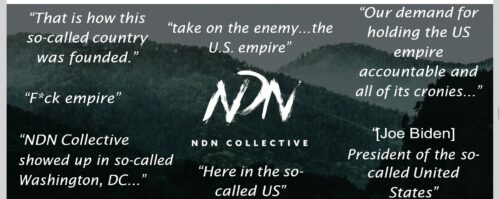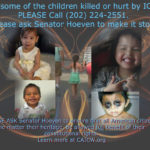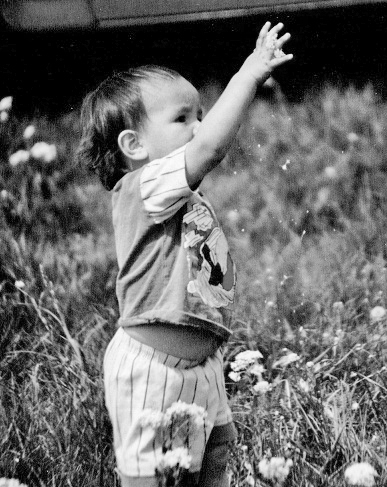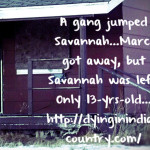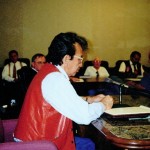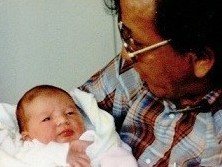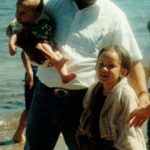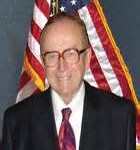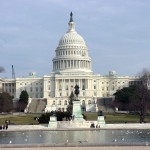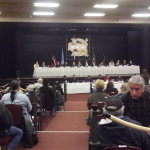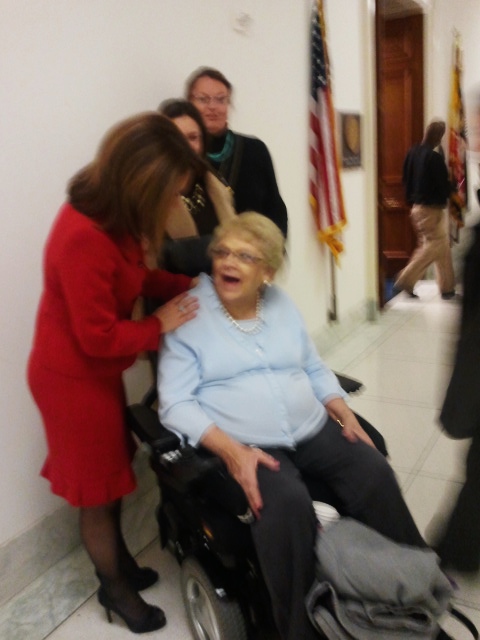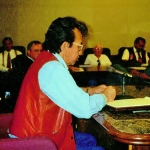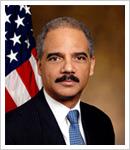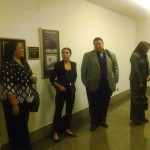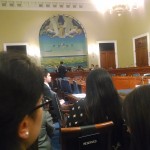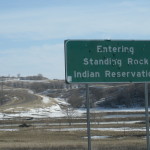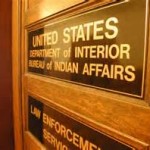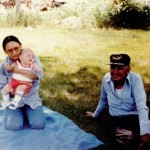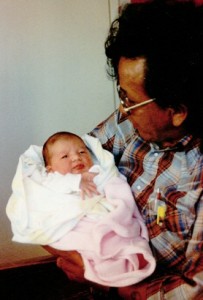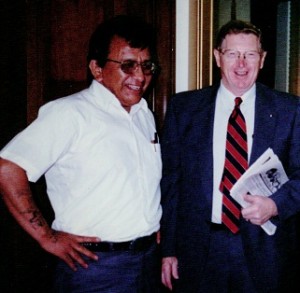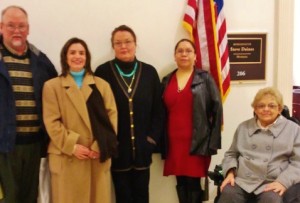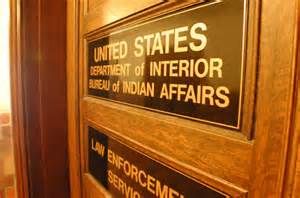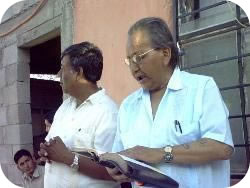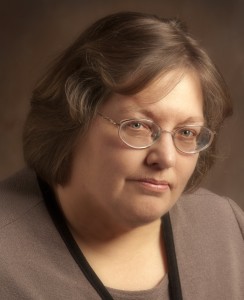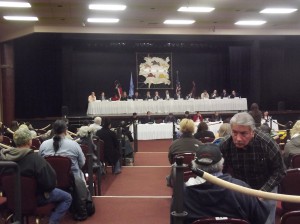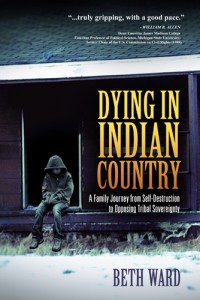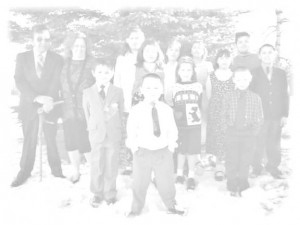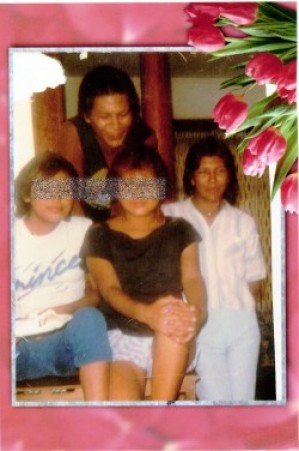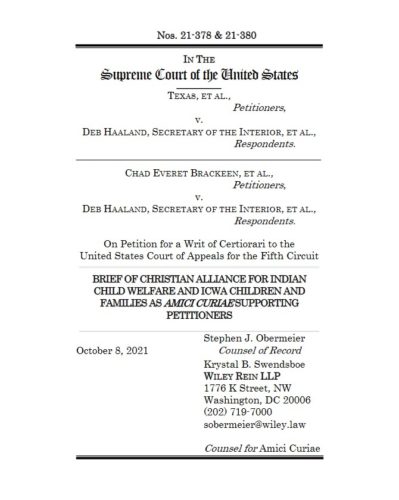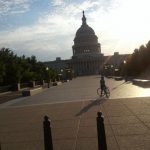
Benefit for Native Americans, or a grift for NGOs?
By Elizabeth Morris – March 2, 2025
Introduction
Economist Milton Friedman taught that competitive capitalism is both a vehicle for economic freedom and a necessity for political freedom (Friedman and Friedman 2002) (E. Morris 2025). Government control of resources and property destroys liberty and government control of the media destroys free speech – thus it is impossible to preserve political freedom in a system where the government controls the economy. As both the federal and tribal governments practice extreme over-reach upon tribal members, the free-market theory of economics and private property ownership is paramount with regard to political and economic conditions within the reservation system (E. Morris 2025).
“Economist Shawn Regan, in his article, Ways The Government Keeps Native Americans In Poverty, examined federal policies that impede tribal members from attaining financial success and hinder economic development in Indian Country (Regan 2014)” (E. Morris 2025). Regan, along with economists Sowell (2009, 244-245), Alston, and T. Anderson, believes full title to property is necessary for financial leverage – and thus individual and community health and growth (E. Morris 2025).
Economic development in Indian Country requires the establishment of financial institutions and proper stewardship of resources. But it also requires proper oversight, accountability and audit. While much attention has recently been brought upon the widespread corruption within the federal government, the corruption that flows to and through tribal entities with the help of federal dollars remains almost a taboo topic.
Case Point #1: Selling bonds on the Pine Ridge Reservation. Was Hunter Biden Trying to Exploit Tribal Sovereignty?
Many Americans know that on May 12, 2014, Hunter Biden was placed on the board of Burisma, the Ukrainian private oil and gas company (U.S. HSGAC – Finance Committees 2020, 66). His partner, Devon Archer, had been placed on the board three weeks earlier. According to State Department records, the United States Agency for International Development (USAID) funded the Municipal Energy Reform Program (MERP), which entered into a ‘Memorandum of Understanding’ with Burisma on October 13, 2014” (U.S. HSGAC – Finance Committees 2020, 15 ftn).
What many are not aware of was Biden’s involvement in a financial crime that used a relatively unregulated bond opportunity on the Pine Ridge Reservation. A payday loan company, established by Raycen Raines around 2012, was initially unaffiliated with Biden and his friends. Located within Oglala Lakota County, which was designated by the U.S. Census Bureau in 1980 as the poorest county in the nation,” loans were made around the country as an “official tribal entity,” free from interference by state regulators” (Morris 2020). It was reported that the payday business charged “an annual percentage rate of 782.00% and a daily interest rate of just more than .021%, meaning that if an individual borrowed $25.71 they would be required to pay back $325.71 if they miss the first scheduled payment that is due two weeks after a loan is taken out” (Ecoffey 2014).
At the time, the “Biden group” was still putting together their own financial vehicles. In an email thread dated October 5, 2013, in which Archer, John Galanis, and Bevan Cooney go over changes to be made in their “bios” as part of organizational affairs, they reference adding Hunter Biden to the group and “putting a little honey in his pocket” (Morris 2020).
Archer and former Secretary of State John Kerry’s stepson, Christopher Heinz, had met at Yale where they were roommates. Over time, they built a business relationship with Hunter Biden. Rosemont Capital was their initial primary business vehicle. However, in October 2013, they decided to use a “Rosemont Seneca SPV” (special purpose vehicle) because “Rosemont Capital was too close to the Heinz family” and using an SPV would “bring Hunter into the mix.” Archer wanted “to leverage Hunter” in a way that did not involve Heinz as much, because Heinz was “more risk averse’” (Morris 2020). They also mentioned that “Hunter will work if we need him too [sic]” (Morris 2020). Within a week, Biden’s business associate Jason Galanis has set up Rosemont Seneca Partners. Archer, pleased, stated, “Perfect. Let us just keep to that. We get the Biden lift and stay out of Heinz panties” (Morris 2020).
Hunter, Archer and Heinz briefly became “primary business partners on matters involving Ukraine and China” and co-partners in “a variety of investment-focused firms under the name Rosemont Seneca” (Morris 2020). For almost two years, Burisma:
sent 48 wires to Rosemont Seneca Bohai, totaling $3,489,490.78. Of the 48 transactions, 39 are described as “Consulting Services” and 39 of the 48 are in the amount of $83,333.33, with the last of the payments occurring on Feb. 12, 2016. Between June 5, 2014, and Oct. 5, 2015, Rosemont Seneca Bohai sent 38 wires totaling $701,979.00 to three of Hunter Biden’s bank accounts. (U.S. HSGAC – Finance Committees 2020, 67)
Heinz began making moves to sever his formal business ties with Archer and Biden in May 2014. Meanwhile, Biden and Archer joined with the Galanis and Cooney to take over the payday scheme and begin the bond ruse. Attorney William Shipley wrote,
…a group of white-collar ‘fraudsters’ with a long track record of dubious and illegal financial dealings, pitched a proposal to the Wakpamni Lake Community Corporation of the Oglala Sioux Tribe, in Pine Ridge, South Dakota, to issue a series of tax-free tribal bonds to raise money for improvements and public works projects on Tribal land. The fraudsters claimed they would take the proceeds from the bond sales and purchase annuities with a reputable insurance company. The revenue from the annuities would pay the interest on the bonds to the investors, and the excess revenue would be used to fund projects on the Tribal land. …What happened instead was that, through a series of fraudulent acts and sham transactions, after the Tribe issued three sets of bonds with an aggregate total value of $64 million, none of the proceeds from the sales of the bonds were used to purchase annuities as promised. Only the first interest payment to investors was made — with money obtained from another source — and a sizeable amount of the $64 million was spent by the promoters on themselves, as well as being used in other business operations with which they were involved. (Shipley 2020)
Shipley put together the following timeline summary of the Pine Ridge scheme:
• At a Las Vegas Indian Economic Development event in March 2014, Jason and John Galanis met the tribal members who ran the payday loan company. The tribal members did not actually represent the tribe, had little capital, no land base and no collateral (Waste 2020). Many individual tribal members have no land title to leverage for investment and loans from banks because the federal government holds their land captive in a “trust.” However, the Galanis, who came to the event looking for poorly regulated tribal partners, sold them on the idea of issuing bonds (Morris 2020).
• The Galanis then took steps to divert funds for the project. Archer knew about this.
• The first bonds were sold in August 2014 “with revenue from the sale totaling $28 million.”
• The second set of bonds were sold in September 2014, “with revenue from the sale totaling $20 million. The purchase of the second set is made with $20 million taken from the $28 million sitting in a bank account. Archer takes “ownership” of one-half of the second set of bonds, and lists them as assets of Rosemont Seneca Bohai, LLC, a real estate investment company that is funded with money from a Chinese investment company partner. At this point, it seems that Rosemont Seneca Bohai has Archer as the only US partner, not Biden or Heinz.”
• The third set of bonds is sold in April 2015, raising $16 million. The funds to buy those bonds come from one client of the second investment advisory company purchased by Galanis and Archer.”
• “At that point, the Tribe has issued $64 million worth of bonds — that it will one day have to buy back — and none of the $64 million has been invested for the benefit of the tribe. The fraud is clear and absolute.”
According to a joint report between the senate committees for Finance and Homeland Security/Governmental Affairs, “In May 2016, Hunter Biden’s business partner, Archer, and five others were arrested and criminally charged in a scheme to defraud investors and a tribal entity of millions of dollars” (U.S. HSGAC – Finance Committees 2020, 68). Charges “were brought in connection with the President’s Financial Fraud Enforcement Task Force,” which conveniently left the Vice President’s son totally out of the picture (Morris 2020).
Nevertheless, documents filed in Hunter Biden’s paternity case showed he was subject to multiple criminal investigations related to “fraud, money laundering and a counterfeiting scheme,” including investigations related to Burisma Holdings, and allegations that “Biden had a hand in a plot … to rip off Sioux Native Americans to the tune of $60 million through the shady sale of tribal bonds”… and Biden “did drum up business for the scheme” (Rosner and Feis 2019). Further, Cooney, who was convicted in the Tribal bond fraud, has released about 26,000 emails, suggesting many implicate Hunter Biden in the bond scheme. Cooney stated that he released the emails because “Hunter Biden improperly escaped accountability and responsibility for his role in the fraud for which seven other people have gone to prison” (Shipley 2020).
Beware of smooth talkers. Look for what is underneath: Watch for the fruit.
While much has been made about how these crimes were foisted on an impoverished, unsuspecting tribe, it needs to be noted that while it was indeed forced on much of the tribe, several leaders were very aware of the illegality of what was happening and ultimately approved it. The leaders approved the scam with the intention of enriching themselves through predatory lending – lending that would intentionally prey upon poor people who could not afford the interest rates (Morris 2020). In fact, Wakpamni Lake Community Corporation is currently “wholly owned by the Wakpamni Lake Community government, a subsidiary municipal tribal government of the Oglala Sioux Tribe on the Pine Ridge Indian Reservation and serves as the wholly-owned economic development arm” of the community (Wakpamni Lake Community 2020). According to the Better Business Bureau (2025), WLCC does business under about 100 different names, including Arrowhead Advance, Fast Day Loans, Enableloans.com, and WLCC Lending. Several of these entities had federal RICO and other charges filed against them in the years 2021 to 2025 in several states (SEE: Marquez v. Wakpamni Lake Community Corporation et al; Banas v. WLCC Lending FDL et al; Rainey v. WLCC Lending JEM et al; Rushin v. Black Hawk Financial et al; Bridges v. Raines; Green v. WLCC II et al; Ohlemeyer v. Fast Fund Lending et al; Harris v. WLCC Lending FHC et al; Knotts v. WLCC Lending FFG d/b/a Falcon Funding Group et al) (PaceMonitor 2024), (Justia 2025), (Justia 2024), and more.
Case Point #2: The Federal Reserve of Minneapolis
What is the Federal Reserve? “The Federal Reserve Act of 1913 established the Federal Reserve System as the central bank of the United States to provide the nation with a safer, more flexible, and more stable monetary and financial system” (Board of Govs Federal Reserve 2017).
According to the Board of Governors for the Federal Reserve, (2025), “The Federal Reserve System …performs five general functions to promote the effective operation of the U.S. economy and, more generally, the public interest:
• conducts the nation’s monetary policy to promote maximum employment, stable prices, and moderate long-term interest rates in the U.S. economy;
• promotes the stability of the financial system and seeks to minimize and contain systemic risks through active monitoring and engagement in the U.S. and abroad;
• promotes the safety and soundness of individual financial institutions and monitors their impact on the financial system as a whole;
• fosters payment and settlement system safety and efficiency through services to the banking industry and the U.S. government that facilitate U.S.-dollar transactions and payments; and
• promotes consumer protection and community development through consumer-focused supervision and examination, research and analysis of emerging consumer issues and trends, community economic development activities, and the administration of consumer laws and regulations.
While economic development can be interpreted as an aspiration of the Federal Reserve, it is unclear why the Fed partners with social justice NGOs to establish their agendas.
The Federal Reserve’s Investment in Indian Country
According to Federal Reserve historian Jonathan Rose, “significant interactions between the Federal Reserve and Native American communities began in the 1990s, spurred by the Federal Reserve’s responsibilities under the Community Reinvestment Act (CRA)” (Rose 2023). Since the establishment of the CRA, “engagement between the Federal Reserve and Native American communities has expanded, “including through the creation of the Center for Indian Country Development (CIDC) at the Minneapolis Fed in 2015” (Rose 2023).
What is the Community Reinvestment Act (CRA)?
“The Community Reinvestment Act (CRA), enacted in 1977, requires the Federal Reserve and other federal banking regulators to encourage financial institutions to help meet the credit needs of the communities in which they do business, including low- and moderate-income (LMI) neighborhoods” (Board of Govs Federal Reserve 2024).
Banking Regulators for the CRA
“Three federal banking agencies, or regulators, are responsible for the CRA. Banks that have CRA obligations are supervised by one of these three regulators. Each regulator has a dedicated CRA site that provides information about the banks they oversee and those banks’ CRA ratings and Performance Evaluations” (Board of Govs Federal Reserve 2024)
• Federal Deposit Insurance Corporation (FDIC)
• Federal Reserve Board (FRB)
• Office of the Comptroller of the Currency (OCC)
Federal Reserve’s Role
“The Federal Reserve supervises state member banks–or, state-chartered banks that have applied for and been accepted to be part of the Federal Reserve System–for CRA compliance” (Board of Govs Federal Reserve 2024). To carry out its role, the Federal Reserve
• examines state member banks to evaluate and rate their performance under the CRA;
• considers banks’ CRA performance in context with other supervisory information when analyzing applications for mergers, acquisitions, and branch openings; and
• shares information about community development techniques with bankers and the public.
Who authorized the Federal Reserve to funnel money through the CIDC?
While it is unclear whether the CIDC is what the enacting laws intended, the Board of Governors has the authority to
act in its own name and through its own attorneys in enforcing any provision of this title, regulations promulgated hereunder, or any other law or regulation, or in any action, suit, or proceeding to which the Board is a party and which involves the Board’s regulation or supervision of any bank, bank holding company…or other entity, or the administration of its operations. (Board of Govs Federal Reserve 2017, (p))
The President of the Federal Reserve of Minneapolis states:
Native nations are determined to design their own futures. I’m proud that the Center for Indian Country Development, based here at the Minneapolis Fed, informs these economic development efforts through high-quality research and analysis and events that bring experts and stakeholders together. —Neel Kashkari, President, Federal Reserve Bank of Minneapolis. (Federal Reserve 2025)
Was the CRA intended to be a nation-building mechanism?
Sharing community development techniques with bankers and the public is a role that is apparently open to Board interpretation and can include promotion, advocacy and activism for change to public policy. Lofty goals are often sprinkled in with more dangerous rhetoric. The Center for Indian Country Development (CIDC) was established with the purpose of “advancing the economic self-determination and prosperity of Native nations and Indigenous communities through actionable data and research that make substantial contributions to public policy” as well as “close the data gap to inform the implementation of effective policies in Native American communities, increase the accessibility of financing and commercial credit, and optimize tribal taxation authority to raise predictable revenue for public investment” (Rose 2023).
The mission of the Federal Reserve’s CIDC goes beyond data collection and increasing commercial credit. The CIDC is involved in changing public policy and advocating for the distribution of federal funds to tribal governments. Casey Lozar, Vice President at the Federal Reserve Bank of Minneapolis and Director of the CIDC, has done policy work “to ensure that Tribal Nations are not overlooked in public finance” including “federal funding to address energy needs among Tribal Nations” (PMP 2024).
Meeting energy needs is important – which is why encouraging self-sufficiency is important. Policies to support energy could include those that encourage growth of the economy through oil production, as the Fort Belknap Reservation is doing. Economic Development could also mean encouragement of private land ownership free from the constraints of the Bureau of Indian Affairs (BIA).
Even the Fed admit that poverty within reservation boundaries is largely due to land being held “in trust” by the federal government. The Federal Reserve states that “For such land, lenders cannot execute a standard mortgage, as they cannot acquire the underlying land” (Rose 2023). However, rather than encourage the federal government to release full titles to the adults holding land allotted to them, allowing stewardship of their own property as other adults are allowed, the Fed encourages “workarounds,” such as “securing a loan by a leasehold interest or by some other type of property or revenue stream.” At the same time, the Fed concedes that “lending institutions may have to invest in learning how they can underwrite loans differently while also maintaining profitability” (Rose 2023).
Interestingly, most tribal members do not live within reservation boundaries and might benefit more from policies that assist economic development apart from the watchful eye of the BIA. The Fed states that “Statistically, 45 percent of the American Indian and Alaska Native population lives in census tracts that are low- or moderate-income, distressed, or underserved, and therefore the kind of areas that the CRA was intended to benefit” (Rose 2023). However, according to the last three U.S. censuses, over 75% of tribal members do not live within Indian Country (US Census Bureau 2000) (US Census Bureau 2010) (U.S. Census Bureau 2020). Many have left due to the high rate of crime, violence and poverty on many reservations. According to numerous reports and studies,
…types of crimes that Native Americans are likely to be victimized by include: murder, assault, drug trafficking, human trafficking, and gang violence” (Tighe, 2014) (Hyland 2014, 4). In 2014, the Center for Native American Youth had reported, “Violence, including intentional injuries, homicide and suicide, account for 75% of deaths for AI/AN youth age 12 to 20” (SAMHSA) (Center for Native American Youth 2014). The CNAY also stated, “Adolescent AI/ANs have death rates 2 to 5 times the rate of whites in the same age group (SAMHSA), resulting from higher levels of suicide and a variety of risky behaviors” (Center for Native American Youth 2014) …and… Recent research shows that while the US child mortality rate for children ages 1 to 14 has decreased by 9% since 2000, it has increased by 15% among AI/AN children (National Court Appointed Special Advocate Association) …Alcoholism mortality rates are 514% higher than the general population” (Center for Native American Youth 2014). (Morris 2019, 212)
All this to say, if it is true that 45% live in low to moderate housing – AND 75% do not live within reservation boundaries, many AI/AN are living in “areas that the CRA was intended to benefit” – OUTSIDE of reservation boundaries, where lenders CAN “execute a standard mortgage” under the same rules every other citizen benefits from.
Innovations in Financial Services and policy in Indian Country
On August 27, 2018, the Federal Reserve of Minneapolis hosted a “Native Financial Institution Gathering” on the Flathead Reservation in Montana (Federal Reserve 2018).
The director of the CICD at the Federal Reserve Bank of Minneapolis, Patrice Kunesh, moderated a panel concerning ‘Innovations in Financial Services in Indian Country” (Federal Reserve 2018). One of the invited panel participants was Kim Pate, of the newly formed NDN Collective, from the Pine Ridge Reservation in South Dakota.
Founded just months earlier in Rapid City, South Dakota, The NDN Collective is a “left-of-center Native American advocacy organization” active in environmentalist activism (InfluenceWatch 2025). The Executive Director of the Thunder Valley Community Development Corporation, Nick Tilsen, had made an announcement on February 14, 2018, that he was transitioning over the next few months to a position as the CEO and President of the newly founded NDN Collective (Greager 2018) (Trahant 2018). Information shared at the Flathead Reservation meeting concerning NDN Collective included their mission to
Build the collective power of Indigenous Peoples, communities, and Nations to exercise our inherent right to self-determination, while fostering a world that is built on a foundation of justice and equity for all people and the planet (Federal Reserve 2018).
They also shared that the vision of NDN Collective is for a “world that is just and equitable for all people and the planet,” with the theory that change will come through three ‘D’s: “Defend, Develop Decolonize” (Federal Reserve 2018).
Other moderators throughout the meeting included Charlene Herrick and Michou Kokodoko of the Federal Reserve Bank of Minneapolis, Doug Gray of the Federal Reserve Bank of Kansas City, Tesia Lemelle of the Federal Reserve Bank of Philadelphia, Nikki Pieratos of CICD, and Amanda Roberts, Federal Reserve Board of Governors” (Federal Reserve 2018). Ms. Roberts moderated a panel called “Moving to Action – Reaching Native America” (Federal Reserve 2018).
Casey Family programs, a NGO focused on “safely reducing the need for foster care in the United States” (Casey Family 2025), was one of the sponsors for the networking reception held on Flathead Lake following the meeting (Federal Reserve 2018). Critics have claimed that Casey Family achieves its goal of reducing foster care by pushing legislation that makes it more difficult to remove children from unsafe homes. It is unclear how they were involved in a meeting concerning “Innovations in Financial Services.”
CIDC serving as an intermediary to the funneling of funds to Indian Country
On February 1, 2020, Casey Lozar succeeded Patrice Kunesh as director of the CICD at the Minneapolis Fed. Director Casey Lozar announced this in his February 25, 2020, post “Moving forward in Indian Country” (Lozar 2020). In it, he stated,
Our emphasis on robust academic and applied research, or as we call it “actionable research,” brings much needed data and policy insights into the data deserts of Indian Country. Our partnerships in Indian Country tap into the collective motivation to accelerate economic and community development for tribal nations and indigenous peoples. The Bank’s commitment to Indian Country is palpable, and the energy to seek change and elevate best practices in education, homeownership, and access to capital is invigorating. …We are proud of the wide range of research we produced, the public outreach we engaged in, and the follow-up conversations that spurred collective action and policy considerations to advance our tribal communities. We are eager to amplify our efforts in 2020” …Last October, my predecessor Patrice Kunesh testified before the Senate Committee on Indian Affairs on housing and lending in Indian Country… Sen. John Hoeven (R-North Dakota) highlighted some of the core issues in his opening remarks: “The dream of homeownership is a foundational principle in any society. … However, rural and tribal communities often have a difficult time accessing credit and the ability to secure a mortgage on trust lands. (Lozar 2020)
Lozar also noted that Project manager Nikki Pieratos, formerly of the CIDC, “found new opportunities with the NDN Collective,” and Kenneth Whaley’s “article on the low-income housing tax credit program in Indian Country was recently published and supported the CICD’s testimony to the Senate Committee on Indian Affairs” (Lozar 2020).
Climate Justice Alliance
In December 2023, the Environmental Protection Agency (EPA) announced that because of the Inflation Reduction Act, $600 million in grants for 2024 would go to 11 national and regional grantmakers serving as pass-through entities. These grants were appropriated through the 2023 Environmental Justice Thriving Communities Grantmaking (EJ TCGM) Program, which was created to “reduce barriers” to the application process and (specifically) “increase the efficiency of the awards process for environmental justice grants” (CJA 2023)(NDN Collective 2024). The EPA had decided that this pass-through model would increase access to funding for small organizations by “reducing the burden of having to navigate the federal grants process as a prime recipient,” and “reduce the amount of time from application to receipt of funding” (CJA 2023). All this was to get federal money into the hands of left-leaning “environmental justice” NGOs as easily as possible.
On Dec 20, 2023, the Climate Justice Alliance (CJA) announced it had been selected by the EPA to serve as the National Grantmaker pass-through in Regions 8-10 for the EPA’s EJ TCGM program. The CJA received $50 million of the $600 million for 2024 from the EPA. The $50 million would be distributed through CJA’s United Network for Impact, Transformation, & Equity in Environmental Justice Communities (UNITE-EJ) application (CJA 2023). From there, it was said to go to community-based organizations and entities for “capacity building and projects addressing local environmental and public health issues” (CJA 2023).
The “CJA led and submitted the UNITE-EJ proposal” with the help of NDN Collective and other left leaning, federally funded groups (CJA 2023). Nick Tilsen, President and CEO of the NDN Collective stated,
The climate and environmental investments through the Inflation Reduction Act implemented over the next few years will set the groundwork for generations to come. We are excited to partner with UNITE-EJ to ensure that Native communities can access EPA grants, including through Thriving Communities, lead with vision and experience, and move policymakers, tribal governments, and grassroots communities to not only dream but also lean into sovereignty. (CJA 2023)
Case Point #3: Congressional Report: NGOs or Radical Activist Movements?
Seven months later, on July 23, 2024, the US Senate Committee on Environment & Public Works issued a Congressional report titled “Investment in Radical Activists: A Case Study on the NDN Collective – Supported by the Democrats’ Inflation Reduction Act” (EPW/Senate 2024). The report signed by Senator Shelley Moore Capito stated:
Almost two years ago, Democrats rammed through $41.5 billion in funding for the Environmental Protection Agency (EPA) as part of the so-called Inflation Reduction Act (IRA). I was very concerned. The funding totaled four times what the EPA receives through annual appropriations in a typical year, and the Democrats provided no funding to the EPA’s inspector general to oversee and audit the IRA. Democrats wrote the legislation to funnel billions to “community-based nonprofit organizations” with no accountability for how they spent taxpayer dollars. I feared that would be code for bankrolling extreme progressive environmental causes and propping up radical energy activists.
Senator Capito began work to expose “how the IRA supports groups with anti-Israel, pro ‘defund the police’ agendas” (EPW/Senate 2024). Her first conference “focused on Climate Justice Alliance, a radical group receiving $50 million in IRA funding”(EPW/Senate 2024). She then took a deeper dive into their partner, the NDN Collective. The Committee found:
The NDN Collective is an activist group that is a partner of the Climate Justice Alliance, which is being awarded $50 million in taxpayer funding from the Inflation Reduction Act. (NDN is also going to have a say in disbursing $50 million in other IRA funds.) The NDN Collective wants to dismantle bedrock institutions of the United States, and has stood firmly against Israel and in support of pro-Hamas radicals (EPW/Senate 2024).
The organization Influence Watch echoed the Commission’s finding that NDN was a partner of the Climate Justice Alliance and had received $100 million (two $50 million grants) in federal funding provided by the U.S. Environmental Protection Agency (EPA) through the IRA” (InfluenceWatch 2025). Yet, the Biden administration essential response to the oversight work was “nothing to see here” (EPW/Senate 2024). When questioned, the EPA told Fox News that the agency engaged in a “rigorous, multi-level application process” and that “[p]olitical affiliations played no role in the evaluation, scoring, and selection of Grantmakers” (EPW/Senate 2024). Nevertheless, the facts are:
(1) The Biden administration selected the NDN Collective as a partner to administer $100 million in taxpayer resources while the group was actively engaged in radical anti-American and anti-Israel advocacy;
(2) NDN’s positions are not just politically radical—they are stridently anti-American; and
(3) The Biden’s administration support for the NDN Collective as an IRA partner is not a one-off decision; the Administration has sought out the Collective as a trusted advisor throughout President Biden’s term (EPW/Senate 2024).
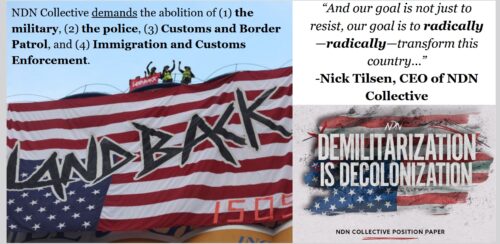 The Congressional Report revealed:
The Congressional Report revealed:
1) In March 2022, NDN released a “position paper” on Palestine, “which designated Zionism as ‘a racist colonial movement’ and called on Palestinians to resist ‘against [the] colonialism and occupation’ of Israel” (EPW/Senate 2024).
2) “Following Hamas’ invasion of Israel on October 7, 2023, the NDN Collective undertook an aggressive anti-Israel campaign that continues to present day. Despite NDN’s public advocacy campaign, the EPA named the NDN Collective as a partner to two $50 million awards under the Inflation Reduction Act’s Environmental Justice Thriving Communities Grantmaking Program in December 2023” (EPW/Senate 2024).
3) On October 19, 2023, The NDN Collective defended Hamas’ “ongoing war against Israel as resistance against ‘settler colonialism’” (EPW/Senate 2024). NDN made a Ceasefire statement: “A ceasefire, and end to the U.S. funding Israel’s military, and true Palestinian land rights and liberation are a path to peace” (EPW/Senate 2024).
4) On November 4, 2023, despite numerous accounts of “widespread brutality” and “rampant sexual violence inflicted on Israeli women,” Tilsen spoke at the “National March on Washington for Palestine” and urged “revolution” against “the U.S. and Israel and cast both countries as enemies against peace and justice” (EPW/Senate 2024). He stated, “We are in struggle. Therefore, we are in REVOLUTION…. “And in this battle we will not stop no matter what” (EPW/Senate 2024).
5) On December 8, 2023, the NDN Collective “broadcast a poetry reading for Gaza’s ‘martyrs’ where participants advocated for violence against Israel and cast the U.S. as a ‘terrorist nation’” (EPW/Senate 2024). Words included:
6) In December 2023, “at the United Nations annual climate conference in Dubai, the State Department invited the NDN Collective to host a panel on ‘Investing in Effective Climate Resiliency: Climate Finance for All Peoples.’ …One NDN panelist displayed her anti-Israel advocacy by donning a ‘ceasefire’ totebag, Palestinian keffiyeh, and ‘solidarity’ with Palestine necklace” (EPW/Senate 2024).
7) On December 20, 2023, the EPA named the NDN Collective “as a partner to two $50 million awards under the IRA’s Environmental Justice Thriving Communities Grantmaking Program.” Awardees were “praised by EPA Administrator Regan and Vice President Harris” (EPW/Senate 2024).
8) On December 25, 2023, the NDN Collective called for “the release of all Palestinian prisoners in Israel, —including those guilty of terrorism and the mass murder of innocent civilians.” They did not call for the release of Israeli hostages held captive in Gaza (EPW/Senate 2024).
9) In May 2024, While protests disrupted Universities across the United States, the NDN “deployed tactical media units to broadcast footage from at least five encampments—including Columbia University and Harvard University—to deny reports of anti-Semitism against Jewish students and amplify pro-Hamas narratives” (EPW/Senate 2024). The NDN Collective blogged on May 7, “Zionism, settler-colonialism, and the US are losing the narrative battle” (EPW/Senate 2024).
Long before the10/7 Attacks, the NDN had made clear their stance that the “U.S. government is illegitimate and should be resisted” (EPW/Senate 2024). “NDN Collective publications and personnel often refer to the United States as the ‘so-called United States’ and the office of President as the ‘so-called President of the United States’” (EPW/Senate 2024).
Additional NDN tenets:
• “The U.S. government, including the military and police, must be dismantled and abolished” (EPW/Senate 2024).
• “Israel has no right to exist and must be demolished. The NDN Collective considers its anti-Israel advocacy to be a core part of its mission.
• “The United States and Israel are twin evils that must be resisted by a united movement” (EPW/Senate 2024).
• “The NDN Collective embraces their anti-American and anti-Semitic beliefs by designating the United States and Israel as the primary source of the world’s problems” (EPW/Senate 2024). According to Tilsen, “Settler colonialism [the United States and Israel] is the biggest threat to climate [change]” (EPW/Senate 2024).
• “In March, the NDN Collective hosted a webinar that sought to unify radical far-left movements, including the anti-Semitic Palestinian Youth Movement (PYM), against the United States and Israel” (EPW/Senate 2024). Lenna Nasr of the PYM recapped the words of NDN panelists, stating, “We really see our role…to confront and dismantle Zionism wherever we find it” (EPW/Senate 2024).
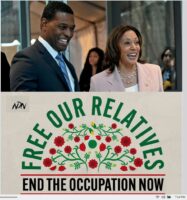 According to the Committees report, the NDN Collective “has advised President Biden and his administration on environmental justice issues since the former NDN Director of Policy and Advocacy Jade Begay began serving on the White House Environmental Justice Advisory Council (WHEJAC) in 2021” (EPW/Senate 2024) and held the ear of many top Biden administrative officials. In April 2023, “Biden signed an executive order positioning environmental justice at the center of his administration’s radical policy agenda” (EPW/Senate 2024). Begay has stated, “How do we decolonize something as bureaucratic as federal grants? … This is about shifting power…to change these processes and systems so that equity is at the center of how these types of grants and dollars move into our communities” (EPW/Senate 2024).
According to the Committees report, the NDN Collective “has advised President Biden and his administration on environmental justice issues since the former NDN Director of Policy and Advocacy Jade Begay began serving on the White House Environmental Justice Advisory Council (WHEJAC) in 2021” (EPW/Senate 2024) and held the ear of many top Biden administrative officials. In April 2023, “Biden signed an executive order positioning environmental justice at the center of his administration’s radical policy agenda” (EPW/Senate 2024). Begay has stated, “How do we decolonize something as bureaucratic as federal grants? … This is about shifting power…to change these processes and systems so that equity is at the center of how these types of grants and dollars move into our communities” (EPW/Senate 2024).
With a start date of October 1, 2024, and an end date of September 30, 2027, the EPA awarded the “pass-through entity,” the Minneapolis Foundation, $52,000,000.00 in federal funds under the Inflation Reduction Act (IRA) for the NDN Collective to receive and redistribute. Starting as a $40 million in grant funding, later amended to $50,000,000, the Collective claimed it would be “awarding 206 grants over the project period with 30% of awards allocated to tribes and indigenous groups, 25% to rural and remote environmental justice (EJ) communities, and 45% to urban EJ communities” (HigherGov 2025).
The NDN Collective would use the final $2 million for “administrative costs, hiring contractual support and other overhead.” (HigherGov 2025). A portion of the $2 million would also be allocated for “personnel to support the subawardees as project officers” (HigherGov 2025).
“The Great Lakes grantmaking program (comprised of the Minneapolis Foundation and their partner, NDN Collective)” intended to use the allocated funds to open applications during October 2024 (HigherGov 2025).
Following the congressional report and two weeks after the 2024 presidential election, on Nov 20, 2024, the Climate Justice Alliance issued a press release stating that “the EPA has yet to fulfill its financial obligations and obligate [its 2025] funds” (CJA 11 2024). The CJA then insisted that the Biden Administration and EPA “deliver on the promises of the Inflation Reduction Act and obligate remaining funds to organizations immediately” (CJA 11 2024). The CJS warned that the $50 million dollars for 2025 must be released before President Trump takes office (CJA 11 2024). KD Chavez, the new executive director of the Climate Justice Alliance, further explained:
At a time when communities will likely experience increased devastation from continued climate catastrophes, it’s important that the promise of the Inflation Reduction Act can actually be accessed by the communities that need it most. …Withholding this funding based on what could be seen as viewpoint discrimination, would set a troubling precedent that undermines our constitutional right to free speech and would also have far-reaching implications for other advocacy organizations representing marginalized and vulnerable populations. (CJA 11 2024)
The Minneapolis Foundation
The Minneapolis Foundation also funnels federal money to social justice organizations under the pretense of public health – and partners with the NDN Collective to do it.
The Minneapolis Foundation was created to partner with nonprofits, facilitate grantmaking, drive research and advocacy, and provide services to donors. It aims to “drive collective action to realize strong, vibrant communities” and “cultivate generosity by taking action on the greatest civic, social, and economic needs” (Mpls Foundation 2024).
In the December, 2024 launch of their Great Lakes Environmental Justice Thriving Communities grantmaking program, the Minneapolis Foundation announced that “Communities in a six-state region may now apply for funding to support environmental justice and public health projects through a new grant program that opens today” (Mpls Foundation 2024). Despite the Congressional report six months earlier, the Foundation proudly announced its partnership with the NDN Collective – who it described as an organization that “creates sustainable solutions ‘on Indigenous terms,’… while fostering a world that is built on a foundation of justice and equity for all people and Mother Earth” (Mpls Foundation 2024).
According to the Foundation, the program “marks a major public investment in local communities that are too often underserved, with a particular focus on rural, urban, and Indigenous communities” using money from the U.S. Environmental Protection Agency (EPA) (Mpls Foundation 2024). The three-year program involves partnership between the Minneapolis Foundation, the NDN Collective, and two other organizations: the Midwest Environmental Justice Network (MWEJN) – a network that works to increase “impact of environmental justice… organizations based in the tribal nations; and the RE-AMP Network – a relatively inoffensive organization that works to “equitably eliminate greenhouse gas emissions in the Midwest” by “building capacity and funding efforts in rural Midwestern communities on clean energy, air and water quality, and energy efficiency,” and believing “strategy and solutions should be set for the Midwest by Midwesterners,” reflecting “the Midwest” (Mpls Foundation 2024).
The Great Lakes grantmaking program is just one of 11 regional “grantmakers” the EPA chose “to issue subgrants through its national Environmental Justice Thriving Communities program” (Mpls Foundation 2024). The Minneapolis Foundation claims that through this partnership, $40 million in grants will be distributed “to support priorities identified by local communities,” from “clean air and water,” “ensuring all residents have access to healthy food,” “workforce development and training for developing and installing clean technologies,” and “resident-led solutions to environmental justice, extreme weather, and public health challenges”(Mpls Foundation 2024). But was the money ear-marked for those specific causes? R.T. Rybak, President and CEO of the Minneapolis Foundation seemed to downplay limitations, stating, “By helping local groups get access to federal funds, we are delivering much-needed resources so that communities across the Great Lakes region… can pursue the work that matters to them” (Mpls Foundation 2024).
Importantly, the Foundation assured that the door to apply was open to Nonprofit organizations, local municipalities, tribal governments, and institutions of higher education that work in the Great Lakes region. However, no matter the response to the open door invitation, the percentage of rural communities to tribal communities, and despite RE-AMP’s assertion that “Rural communities are disproportionately affected by our society’s biggest challenges,” the partnership planned to distribute 30% of grant funding through this program to Indigenous communities, 25% to rural areas, and 45% to urban areas” (Mpls Foundation 2024). They also planned to hold some funds aside for “invitation-only, noncompetitive grants” (Mpls Foundation 2024). Tilsen added that “This program represents a major shift for Indigenous communities, which have spent years advocating for the resources necessary to create a sustainable future” (Mpls Foundation 2024).
Again, despite the Congressional report six months earlier, the EPA announced on January 15, 2025 that the Minneapolis Foundation and its partners (including NDN Collective) are taking applications for the Great Lakes Environmental Justice Thriving Communities Grantmaking Program on a “rolling basis” and “applications submitted by January 31, 2025 will be considered in the first round of reviews” (EPA 2025).
THE NDN COLLECTIVE
NDN Collective press releases identify the network as “an Indigenous-led organization dedicated to building Indigenous power. Through organizing, activism, philanthropy, grantmaking, capacity-building, and narrative change, we are creating sustainable solutions on Indigenous terms” (NDN Collective 1 2025).
In practice, the NDN Collective claims that Mount Rushmore is an “international symbol of white supremacy and racial injustice” built on stolen land (InfluenceWatch 2025). On a July 3, 2020, Tilsen was arrested for his role in a protest near Mount Rushmore prior to President Donald Trump’s Independence Day remarks. His charges included two counts of simple assault against law enforcement officers and second-degree robbery and grand theft, after Tilsen stole a shield from a member of the National Guard. Officers also testified that “Tilsen engaged in physical menacing and made threats against them, in addition to three misdemeanor offenses” (InfluenceWatch 2025). NDN Collective has also used funds to organize get-out-the-vote efforts and voter engagement drives on social media” (InfluenceWatch 2025).
In October of 2020, using a $3 million fund from a Bezos Earth Fund grant, NDN Collective launched the “Landback Campaign… aimed at giving federal lands to tribal organizations” (InfluenceWatch 2025). (Note, number one, the request was for tribal organizations – not tribal communities, and two, except for the Black Hills, most tribes settled the land question with the U.S. Indian Claims Commission over 50 years ago).
Along with demanding federal land grants, the campaign demanded the dismantling of the Bureau of Land Management, the National Park Service (NPS), Customs and Border Patrol (CBP), and Immigration and Customs Enforcement (ICE), claiming that they all support “white supremacy” (InfluenceWatch 2025).
Despite the proposed Keystone XL Pipeline route not running through any federally recognized Native American land, NDN Collective was involved in protests to stop its construction (InfluenceWatch 2025). After President Joe Biden cancelled the pipeline, NDN Collective announced that it would return to protesting “the Dakota Access and Enbridge Line 3 pipeline projects” (InfluenceWatch 2025), despite the DAPL also not encroaching on any tribal land. Interestingly, Tilsen has made no effort to shut down pipelines owned by Native Tribes, including those of Fort Bethold, less than 150 miles north of the Dakota Access line near Bismark.
Beginning in 2021, the NDN Collective started supporting anti-Israel and Palestinian-nationalists. They claimed Israel was a product of “Zionism, settler colonialism, white supremacy, and imperialism” and called for the U.S to stop providing it military aid. (InfluenceWatch 2025).

In 2022, the NDN Collective published a paper by Palestinian journalist Ghassan Kanafani. In the paper, titled, “The Right of Return is Landback,”
Kanafani declared that Israel was the product of “Zionism, settler colonialism, white supremacy, and imperialism” and ends with the phrase “From the River to the Sea, Palestine will be Free,” signifying support for the eradication of Israel (InfluenceWatch 2025).
Nonetheless, the organization, Influence Watch, reports that tNDN Collective received “$2,203,226 million in contributions and grants” in 2018, its very first year of operations. In 2019, NDN Collective received $11,369,310, with “$2.5 million from the Doris Duke Charitable Foundation, $810,000 from the Surdna Foundation, and $400,000 from the Tides Foundation” (InfluenceWatch 2025).
In 2019, NDN Collective received a $12 million grant from the Bezos Earth Fund to support environmentalist activism. From this funding, NDN earmarked $9 million to disburse in separate, $100,000 grants to other Native American organizations as a part of NDN’s Self Determination Grant program. The program was meant to fund other organizations “defending native lands against the fossil fuel industry” (InfluenceWatch 2025).
“In the same year, NDN Collective received $750,000 from the Robert Wood Johnson Foundation, $550,000 from the Tides Foundation, $400,000 from the Ford Foundation, and $100,000 from the Libra Foundation. The Robert Wood Johnson Foundation also listed a $750,000 grant approved for future contributions to NDN Collective in its 2019 filings” (InfluenceWatch 2025).
NDN also received: 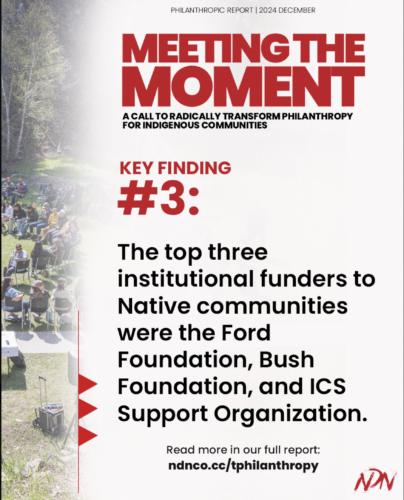
…$300,000 from the Rudolf Steiner Foundation by way of a grant made by the Foundation to the Thunder Valley Community Development Corporation with the purpose of supporting NDN Collective. Tilsen left the Thunder Valley Community Development Corporation in 2018 to lead NDN Collective” (InfluenceWatch 2025).
In 2020, the Bush Foundation awarded NDN Collective a $500,000 grant for a COVID-19 Response Project. NDN Collective also received a Paycheck Protection Program (PPP) loan on April 16, 2020, valued between $150,000 and $350,000” (InfluenceWatch 2025).
Propublica (2025) reports that revenue for the NDN Collective for the period of 2018-2023 totaled $21.6 million. Expenses for the five-year period were $51.1 million. Total assets were $90.8M and liabilities were $19.6 million (Propublica 2025).
NDN Partners, a for-profit organization affiliated with NDN Collective, distributed about 7 million dollars of grants to 200 organizations for NDN Collective (InfluenceWatch 2025). The Collective is a snake with several heads. While registered as a charitable organization, Nick Tilsen calls the collective a “movement infrastructure organization” (InfluenceWatch 2025) or an “NDN Ecosystem.” By the descriptions of the affiliates (Federal Reserve 2018), one wonders if the environment just a side hustle:
• NDN Foundation 501(c)(3) – increasing philanthropic investment into Indigenous led organizations, communities, people, tribes, and movements working to create a world that is just and equitable for all people and the planet;
• NDN Fund 501(c)(3) – increasing access to capital investments and loans for Indigenous led organizations, communities, people, tribes, and movements working to create a world that is just and equitable for all people and the planet;
• NDN Partners LLC – increasing the capacity and skills of Indigenous led organizations, communities, people, tribes, and movements to utilize systems and design thinking to create pathways towards a world that is just and equitable for all people and the planet;
• NDN Action 501(c)(3) – advancing the rights of Indigenous Peoples and the environment through organizing, advocating, and building Indigenous-led movements and campaigns;
• NDN Action Network 501(c)(4) – advancing the rights of Indigenous Peoples and the environment through direct action, policy, and lobbying efforts” (Federal Reserve 2018).
On December 11, 2024, the NDN Collective announced that it had been selected as “an outreach partner for two regions within the Environmental Justice Thriving Communities Grantmaking Program (EJ TCGM) by the Environmental Protection Agency (EPA)” (NDN Collective 2024). They were now tasked with outreach to over 400 federally recognized tribes – and distribute “over $200 million to environmental justice communities” (NDN Collective 2024).
Davis Price, Climate Justice Initiative Director at NDN Collective, claimed this was the “…result of decades of advocacy by climate justice advocates to protect our environment and the communities directly impacted by the climate crisis,” and “This funding is urgently needed to confront environmental and public health issues in communities experiencing disproportionate burdens of environmental hazards, and will provide frontline communities with necessary support in adapting to the climate crisis.” (NDN Collective 2024). Nick Tilsen added, “NDN Collective is committed to ensuring this program is executed with its intended purpose – to provide federal resources to historically underserved communities – while continuing our own grantmaking to resource Indigenous-led solutions to the climate crisis” and “We see this program as a robust tool to protect people and the planet…” (NDN Collective 2024).
Grants were intended to support projects that “focus on issues including but not limited to” (NDN Collective 2024):
• Environmental health
• Air, soil, and water quality
• Healthy homes
• Access to healthy food
• Stormwater and green infrastructure
• Emergency preparedness and disaster resiliency
• Environmental job training
On January 22, 2025, the NDN Collective announced “Wizipan Little Elk Garriott will serve as the organization’s new president. Founder Nick Tilsen will continue to serve as CEO” (NDN Collective 1 2025). Garriott is:
Sicangu Lakota and served as the Principal Deputy Assistant Secretary – Indian Affairs in the U.S. Department of the Interior from 2021 – 2024. In this role, he served as the first assistant and principal advisor to the Assistant Secretary – Indian Affairs, in the development and interpretation of policies affecting Indian Affairs bureaus, offices, and programs. (NDN Collective 1 2025)
Garriott stated, “The opportunity to continue to work on behalf of Indian country at NDN Collective is a blessing. I’m honored to join such an amazing team driving and connecting grassroots, on-the-ground work with national movements and policies” (NDN Collective 1 2025).
On January 29, 2025, NDN released a press release stating the application period was “opened for NDN Collective’s 2025 Community Action Fund (CAF). For the past five years, this grant has supported direct action and frontline organizing across Turtle Island (North America: US, Canada, and Mexico) and related Island Nations, including Boriken/Puerto Rico, American Samoa, Guam, the Northern Mariana Islands, and the US Virgin Islands” (NDN Collective 2025). The press release stated:
The Community Action Fund (CAF) furthers Indigenous Peoples’ mobilization strategies as it relates to the defense, development, and decolonization of people and Mother Earth. This $250,000 fund is available to support such efforts in 2025, with grants up to $20,000. The CAF has provided urgent funding for efforts including Stop Cop City on Ohlone land, resisting pipelines, organizing for the release of political prisoner Leonard Peltier, protection of sacred sites, defense of lands and water, and providing resources for climate change response efforts. (NDN Collective 2025)
Tina Kuckkahn, Managing Director of NDN’s Foundation, added that with
…the escalating climate crisis displacing people across the globe – from wildfires ravaging Tongva land aka Los Angeles, to deadly floods from Turtle Island to Libya, and so much more – it is more urgent than ever to support efforts to defend our lands, waterways and peoples. The courage, fortitude and determination of our people unites us with a sense of hope and solidarity, propelling us forward in the movement during these prophetic times. (NDN Collective 2025)
Funding Canceled by the Trump Administration
On February 13, 2025, a press release from the Climate Justice Alliance announced the EPA’s cancellation of the Climate Justice Alliance Grant. Completely ignoring the revealed behavior of their partners, KD Chavez, Executive Director of CJA, declared,
The Administration continues its attacks on working class communities, rural and urban families with its announcement of the cancellation of the Climate Justice Alliance’s UNITE-EJ program grant. Unfortunately, the Biden administration failed to process these obligated funds intended to help communities facing disasters from climate change and left the decision in the hands of the Trump administration. Despite claims that this administration will protect clean water and clean air for the nation it has attacked basic protections for neglected communities from day one. (CJA 2 2025)
Chavez further claimed the UNITE-EJ program “would have channeled resources into projects that not only protect public health and safety but also create sustainable economic opportunities for jobs” (CJA 2 2025).
Conclusion
On February 28, after a month of overseeing the Department of Government Efficiency as it scoured the waste of Washington DC, Elon Musk reported on the Joe Rogan radio show:
George Soros is like a systems hacker. He has figured out how to hack the system. He is a genius at arbitrage, …He figured out that you could leverage a small amount of money to create a non-profit… then lobby the politicians to send a ton of money to that non-profit so you can take what might be …a $10 million dollar donation to a non-profit… and leverage that into a $1 billion dollar NGO.” …”Then the government continues to fund that every year, …and it will have a nice sounding name like ‘The Institute for Peace’ or something like that. But really …it’s a graft machine. (Musk 2025)
In light of what some members of Congress and the organization, Influence Watch, have uncovered concerning NDN Collective, NDN is a textbook example of what Musk is referring to.
This is the first in a series of papers discussing the breadth of corruption in Indian Country. Corruption does not help average tribal members or their families. It uses them as mere pawns in the game – with no genuine regard for well-being. As said in the introduction of this paper, “economic development in Indian Country” requires not only “the establishment of financial institutions and proper stewardship of resources,” but very importantly, it requires “proper oversight, accountability and audit.” Corruption that flows to and through tribal entities with the help of federal dollars must not only be discussed but stopped.
References
BBB. “Wakpamni Lake Community Corporation.” Better Business Bureau. 2025. https://www.bbb.org/us/sd/pine-ridge/profile/payday-loans/wakpamni-lake-community-corporation-0714-300075893 (accessed 3 2, 2025).
Board of Gov Federal Reserve. “About the Fed.” Board of Governors of the Federal Reserve System. Jan 31, 2025. https://www.federalreserve.gov/aboutthefed.htm (accessed 2 23, 2025).
Board of Govs Federal Reserve. “Community Reinvestment Act (CRA) .” Board of Governors of the Federal Reserve System. Mar 28, 2024. https://www.federalreserve.gov/consumerscommunities/cra_about.htm (accessed 2 22, 2025).
—. “Federal Reserve Act.” Board of Governors of the Federal Reserve System. March 10, 2017. https://www.federalreserve.gov/aboutthefed/fract.htm (accessed 2 22, 2025).
Casey Family. “About Us.” Casey Family Programs. 2025. https://www.casey.org/who-we-are/about/ (accessed 2 23, 2025).
CJA. “Climate Justice Alliance Calls on Biden Administration, EPA to Deliver Inflation Reduction Act’s Remaining Funds Immediately.” Climate Justice Website. Nov 20, 11 2024. https://climatejusticealliance.org/climate-justice-alliance-calls-on-biden-administration-epa-to-deliver-inflation-reduction-acts-remaining-funds-immediately/ (accessed 2 13, 2025).
—. “Climate Justice Alliance, Members, and Partners Receive $50 Million Award from EPA to Increase Access to Federal Funds for Environmental Justice Communities.” Climate Justice Alliance. Dec 20, 2023. https://climatejusticealliance.org/cja-receives-50-million-thriving-communities/ (accessed 2 12, 2025).
—. “EPA Cancels Climate Justice Alliance Grant.” Climate Justice Alliance. Feb 13, 2 2025. https://climatejusticealliance.org/epa-cancels-climate-justice-alliance-grant/ (accessed 2 13, 2025).
DataRepublican. “Federal Grant Research – Oweesta Corp.” Data Republican. Feb 19, 2025. https://datarepublican.com/award_search/?keywords=oweesta (accessed 2 19, 2025).
DeDios, Jeanette. Indigenous leaders call for better practices around tribal data sovereignty . Nov 15, 2024. https://www.kunm.org/local-news/2024-11-15/indigenous-tribal-data-sovereignty (accessed 2 19, 2025).
Ecoffey, Brandon. “Oglala man’s business dealings under scrutiny.” Native Sun News. Aug 19, 2014. https://indianz.com/News/2014/014790.asp (accessed 2021).
EPA EJ TCGM. “The Environmental Justice Thriving Communities Grantmaking Program.” EPA – Environmental Protection Agency. 2025. https://www.epa.gov/environmentaljustice/environmental-justice-thriving-communities-grantmaking-program (accessed 2 23, 2025).
EPA. “Environmental Justice.” EPA – Environmental Protection Agency. 2025. https://www.epa.gov/environmentaljustice (accessed 2 12, 2025).
—. “Region 5 Grantmaker: Great Lakes Environmental Justice Thriving Communities Grantmaking Program.” EPA: Enviromental Justice. Jan 15, 2025. https://www.epa.gov/environmentaljustice/region-5-grantmaker-great-lakes-environmental-justice-thriving-communities (accessed 2 12, 2025).
EPW/Senate. “Investment in Radical Activists: A Case Study on the NDN Collective, Supported by the Democrats’ Inflation Reduction Act.” US Senate Committee on Environment & Public Works. Edited by Shelley Moore Capito. July 23, 2024. https://www.epw.senate.gov/public/_cache/files/c/f/cf21df85-56ef-404c-a484-dc4f71c2ae39/AA62FE480253EB01FA71B5BC32EC0A89.ndn-collective-final-report-epw-committee-7-23-2024.pdf (accessed Feb 13, 2025).
Federal Reserve. Federal Reserve Bank of Minneapolis: Center for Indian Country Development. Feb 12, 2025. https://www.minneapolisfed.org/indiancountry/ (accessed 2 12, 2025).
—. “Native American Financial Institutions Gathering.” Federal Reserve Bank of Minneapolis. Aug 27, 2018. https://www.minneapolisfed.org/-/media/files/community/indiancountry/events/2018-08/nafippt.pdf (accessed 2 21, 2025).
Friedman, Milton, and Rose D. Friedman. Capitalism and Freedom. 40th. Chicago: University of Chicago Press, 2002.
Greager, Kimberly. “Tilsen steps down at Thunder Valley .” Native Sun News Today. Feb 14, 2018. https://www.nativesunnews.today/articles/tilsen-steps-down-at-thunder-valley/ (accessed 2 27, 2025).
HigherGov. “Cooperative Agreement 01E03682.” HigherGov. 2025. https://www.highergov.com/grant/01E03682/#activity_timeline (accessed 2 22, 2025).
InfluenceWatch. “NDN Collective.” Influence Watch. Feb 12, 2025. https://www.influencewatch.org/non-profit/ndn-collective/ (accessed 2 12, 2025).
Justia. “GREEN v. WLCC II et al.” Justia. Jul 2024, 2024. https://dockets.justia.com/docket/indiana/insdce/1:2024cv01178/215804 (accessed 3 2, 2025).
—. “Rainey v. WLCC Lending JEM et al.” Justia. Feb 19, 2025. https://dockets.justia.com/search?query=wakpamni (accessed 3 2, 2025).
Lozar, Casey. “Message from Director Casey Lozar: Moving forward in Indian Country .” Federal Reserve Bank of Minneapolis. Feb 25, 2020. https://www.minneapolisfed.org/article/2020/message-from-director-casey-lozar-moving-forward-in-indian-country (accessed 2 21, 2025).
Morris, Elizabeth. The Fallacies Supporting Current Federal Indian Policy. Fargo: Unpublished, 2025, 20.
Morris, Elizabeth. “The Philosophical Underpinnings and Negative Consequences of the Indian Child Welfare Act.” Scholars Crossing, 8 2019: 337 .
—. “The Predatory yet Lucrative Indian Industry.” Dying in Indian Country. Oct 26, 2020. https://dyinginindiancountry.com/2020/10/26/the-predatory-yet-lucrative-indian-industry/.
Mpls Fndn. “Great Lakes Environmental Justice Thriving Communities grantmaking program.” Minneapolis Foundation. 2024. https://www.minneapolisfoundation.org/great-lakes/ (accessed 2 12, 2025).
Mpls Foundation. “$40 Million Available for Environmental Justice Grants.” Minneapolis Foundation. Dec 5, 2024. https://www.minneapolisfoundation.org/stories/climate/40-million-available-for-environmental-justice-grants/ (accessed 2 13, 2025).
Musk, Elon, interview by Joe Rogan. “#2281 – Elon Musk.” The Joe Rogan Experience . (Feb 28, 2025).
NDN Collective. “NDN Collective Announces New President.” NDN Collective. Jan 22, 1 2025. https://ndncollective.org/ndn-collective-announces-new-president/ (accessed 2 12, 2025).
—. “NDN Collective Selected As Outreach Partner For Major EPA Grants.” NDN Collective. Dec 11, 2024. https://ndncollective.org/ndn-collective-selected-as-outreach-partner-for-major-epa-grants/ (accessed 2 12, 2025).
—. “NDN COLLECTIVE’S 2025 COMMUNITY ACTION FUND APPLICATION PERIOD OPENS.” NDN Collective. Jan 29, 2025. https://ndncollective.org/ndn-collectives-2025-community-action-fund-application-period-opens/ (accessed 2 12, 2025).
PaceMonitor. “Rushin v. Black Hawk Financial et al.” PaceMonitor. Aug 23, 2024. https://www.pacermonitor.com/public/case/54825587/Rushin_v_Black_Hawk_Financial_et_al (accessed 3 2, 2025).
PMP. Public Money Pod: Public finance among tribal nations, with Casey Lozar. Vers. Episode 15. Center for Municipal Finance. Sept 30, 2024. https://player.captivate.fm/episode/a3820080-d5a2-4dac-b521-0ccebb027902 (accessed 2 19, 2025).
Propublica. “Ndn Collective Inc.” Propublica. Feb 12, 2025. https://projects.propublica.org/nonprofits/organizations/823776329 (accessed 2 12, 2025).
Regan, Shawn. “5 Ways The Government Keeps Native Americans In Poverty.” Forbes. 2014. http://www.forbes.com/sites/realspin/2014/03/13/5-ways-the-government-keeps-native-americans-in-poverty/#739501c6cc62 (accessed 12 16, 2016).
Rose, Jonathan. “The Federal Reserve and Native American Communities: A Brief History.” Federal Reserve History. Federal Reserve. July 12, 2023. https://www.federalreservehistory.org/essays/native-american-communities (accessed 2 20, 2025).
Rosner, Elizabeth, and Aaron Feis. “Private-eye firm claims Hunter Biden is linked to multiple criminal probes.” New York Post. Dec 23, 2019. https://nypost.com/2019/12/23/hunter-bidens-baby-mama-says-hes-linked-to-multiple-criminal-probes/ (accessed 2021).
Sam.gov. “Environmental Justice Thriving Communities Grantmaking Program (EJ TCGM).” SAM.gov. 2024. https://sam.gov/fal/e9fa9290278e49d5a6a2dd7e4dc71e5a/view (accessed 2 12, 2025).
Shipley, William. “Should Hunter Biden Be in Jail? Another Look at the Oglala Sioux Indian Tribe Securities Fraud Case.” Red State, Oct 19, 2020.
Sowell, Thomas. Applied Economics. New York: Perseus Books Group, 2009.
Trahant, Mark. “Nick Tilsen Steps Down as CEO of Thunder Valley Corp To Lead NDN Collective.” Indian Country Today. 3 2020, 2018. https://ictnews.org/archive/nick-tilsen-steps-ceo-thunder-valley-corp-lead-ndn-collective (accessed 2 28, 2025).
U.S. Census Bureau. U.S. Census. Washington DC: U.S. Census Bureau, 2020.
U.S. HSGAC – Finance Committees. Hunter Biden, Burisma, and Corruption: The Impact on U.S. Government Policy and Related Concerns. Joint Report, Washington DC: U.S. Senate Committee on Homeland Security and Governmental Affairs; U.S. Senate Committee on Finance Majority Staff Report, 2020.
US Census Bureau. The American Indian and Alaska Native Population 2010. Statistics, Bureau of the Census, US. Dept of Commerce, Washington DC: US. Dept of Commerce, 2010.
US Census Bureau. US Census. Statistics, US Census Bureau, Dept of Commerce, Washington DC: Dept of Commerce, 2000.
Wakpamni Lake Community. ewakpamni. 2020. https://www.ewakpamni.com/corporation (accessed 3 2, 2025).
Waste, Ernestine Anukasan. “Reservation community responds.” Native Sun News Today. Feb 6, 2020. https://indianz.com/News/2020/02/06/native-sun-news-today-reservation-commun.asp (accessed 2021).
Read More
References from Influence Watch
1. Action Network, “Petition to Close Mt. Rushmore and Return All Public Lands in the Black Hills to THE OCETI SAKOWIN.” accessed February 7, 2021, https://actionnetwork.org/petitions/petition-to-close-mt-rushmore-and-return-all-public-lands-in-the-black-hills-to-the-oceti-sakowin.
2. NDN Collective July 2020 Newsletter. NDN Collective. https://ndncollective.org/newsletters/july-2020-newsletter/
3. Vincent Schilling. “NDN Collective offers millions to tribes, Indigenous nonprofits, artists and entrepreneurs.” Indian Country Today. April 27, 2020. Accessed via Web Archive. Captured February 7, 2021. http://web.archive.org/web/20200508003756/https:/indiancountrytoday.com/news/ndn-collective-offers-millions-to-tribes-indigenous-nonprofits-artists-and-entrepreneurs-DZwVRkJ5b0ChDHSyhYlxig.
4. Steven Mufson, “Bezos makes first donations from $10 billion Earth Fund for fighting climate change.” Washington Post. November 16, 2020. Archived from the original February 7, 2021. Accessed February 7, 2021. http://web.archive.org/web/20210207131336if_/https://www.washingtonpost.com/climate-environment/2020/11/16/bezos-climate-grants/
5. “Right of Return is Landback.” NDN Collective. Accessed December 5, 2024. https://ndncollective.org/right-of-return-is-landback/.
6. “NDN Collective Calls for Cease Fire, End of Military Aid to Israel.” NDN Collective. October 19, 2023. Accessed December 5, 2024. https://ndncollective.org/ndn-collective-calls-for-cease-fire-end-of-military-aid-to-israel/.
7. Michael Kavate. “Native American Activists Make Gains, but Philanthropy ‘Continues to Scratch the Surface.’” Inside Philanthropy. Accessed via Web Archive. Archived July 7, 2020. http://web.archive.org/web/20200728183601/https://www.insidephilanthropy.com/home/2020/7/28/native-american-activists-make-gains-but-philanthropy-continues-to-scratch-the-surface.
8. KOTA Staff. “NDN Collective gets awarded $12M from Jeff Bezos.” KOTA TV. November 26, 2020. Accessed February 7, 2021. https://www.kotatv.com/2020/11/26/ndn-collective-gets-awarded-12m-from-jeff-bezos/.
9. Arielle Zionts. “Mount Rushmore protest leader charged with two felonies.” Rapid City Journal. July 6, 2020. https://rapidcityjournal.com/news/local/crime-and-courts/mount-rushmore-protest-leader-charged-with-two-felonies/article_363e00b2-3a22-5de9-937f-2c518d3c5b6d.html.
10. Action Network, “Petition to Close Mt. Rushmore and Return All Public Lands in the Black Hills to THE OCETI SAKOWIN.” Accessed February 7, 2021. https://actionnetwork.org/petitions/petition-to-close-mt-rushmore-and-return-all-public-lands-in-the-black-hills-to-the-oceti-sakowin.
11. NDN Collective July 2020 Newsletter. NDN Collective. https://ndncollective.org/newsletters/july-2020-newsletter/.
12. NDN Collective June 2020 Newsletter. https://ndncollective.org/newsletters/june-2020-newsletter/.
13. Nick Tilsen. “Our Voices Won’t Be Silenced.” NDN Collective. April 12, 2019. Accessed via Web Archive. Captured November 28, 2020. http://web.archive.org/web/20201128212155/https://ndncollective.org/our-voices-wont-be-silenced-fighting-the-sd-riot-boosting-act-and-the-keystone-xl-pipeline/.
14. Arielle Zionts. “South Dakotans show mixed reactions to halting oil pipeline.” Rapid City Journal. February 1, 2021. https://www.wral.com/south-dakotans-show-mixed-reactions-to-halting-oil-pipeline/19494470/?version=amp.
15. Stuart Huntington. “Doubling Down on Native Values.” Indian Country Today. November 25, 2020. Accessed February 7, 2021, https://indiancountrytoday.com/news/doubling-down-on-native-values-45uW-FHqq0GecLZIhH4leg.
16. Landback Campaign Manifesto. Accessed from Web Archive. Febaruary 8, 2020. https://landback.org/manifesto/
17. “NDN Collective Responds to Inauguration of President Joe Biden.” NDN Collective Press Release. January 21, 2021. https://ndncollective.org/ndn-collective-responds-to-inauguration-of-president-joe-biden/.
18. “Investment in Radical Activists: A Case Study on the NDN Collective Supported by the Democrats’ Inflation Reduction Act.” U.S. Senate Committee on Environment & Public Works. Accessed December 5, 2024. https://www.epw.senate.gov/public/_cache/files/c/f/cf21df85-56ef-404c-a484-dc4f71c2ae39/AA62FE480253EB01FA71B5BC32EC0A89.ndn-collective-final-report-epw-committee-7-23-2024.pdf.
19. “NDN Collective.” Twitter. December 25, 2023. Accessed December 5, 2024. https://x.com/ndncollective/status/1739270120541692086.
20. “Nick Tilsen.” NDN Collective, January 26, 2021. https://ndncollective.org/people/nick-Tilsen/.
21. “Nick Tilsen.” Thunder Valley CDC. Accessed February 18, 2021. https://thundervalley.org/learn-more/our-team/nick-Tilsen.
22. Arielle Zionts. “Tilsen Case Heading to Trial after Judge Finds Probable Cause.” Rapid City Journal Media Group. last modified October 1, 2020. Accessed February 7, 2021. https://rapidcityjournal.com/news/local/crime-and-courts/Tilsen-case-heading-to-trial-after-judge-finds-probable-cause/article_df671a98-7c24-5503-8381-9c218e69828b.html.
23. Grant Pritchett. “Tilsen’s defense seeks training, pre-deployment materials in July 3 protest near Mt. Rushmore.” Rapid City Journal. December 18, 2020. Accessed February 7, 2021. https://rapidcityjournal.com/news/local/crime-and-courts/Tilsens-defense-seeks-training-pre-deployment-materials-in-july-3-protest-near-mt-rushmore/article_0820746b-bfdf-5965-8c11-583b01265bb0.html.
24. “Kim Pate.” NDN Collective, January 26, 2021. https://ndncollective.org/people/kim-pate/.
25. “Board of Directors.” NDN Collective. Accessed February 18, 2021. https://ndncollective.org/groups/board-of-directors/.
26. “Jade Begay.” NDN Collective. Accessed December 5, 2024. https://www.linkedin.com/in/jadebegay/.
27. NDN Collective, Return of an Organization Exempt from Income Tax (Form 990), 2019, Part I, Line 8. https://pdf.guidestar.org/PDF_Images/2019/823/776/2019-823776329-17224955-9.pdf.
28. Doris Duke Charitable Foundation, Inc., Return of a Private Foundation (Form 990-PF), 2019, Attachment 17, Page 10 of 26.
29. The Surdna Foundation, Inc. Return of a Private Foundation (Form 990-PF), 2018, Part XV.
30. Tides Foundation, Return of Organization Exempt from Income Tax (Form 990), 2018, Schedule I, Part II.
31. Rudolf Steiner Foundation, Return of an Organization Exempt from Income Tax (Form 990), 2018, Schedule I, Part II.
32. Mark Trahant. “Nick Tilsen Steps Down as CEO of Thunder Valley Corp to Lead NDN Collective.” Indian Country Today. March 20, 2018. https://indiancountrytoday.com/news/nick-Tilsen-steps-down-as-ceo-of-thunder-valley-corp-to-lead-ndn-collective-eHJ8HVHPLEalh0oK5yUqzQ.
33. Steven Mufson. “Bezos makes first donations from $10 billion Earth Fund for fighting climate change.” Washington Post. November 16, 2020. Archived from the original February 7, 2021. Accessed February 7, 2021. http://web.archive.org/web/20210207131336if_/https://www.washingtonpost.com/climate-environment/2020/11/16/bezos-climate-grants/.
34. Stuart Huntington. “Doubling Down on Native Values.” Indian Country Today. November 25, 2020, accessed February 7, 2021. https://indiancountrytoday.com/news/doubling-down-on-native-values-45uW-FHqq0GecLZIhH4leg.
35. Robert Wood Johnson Foundation, Return of a Private Foundation (Form 990-PF), 2019, Part XV.
36. Tides Foundation, Return of Organization Exempt from Income Tax (Form 990), 2019, Schedule I, Part II.
37. Ford Foundation, Return of a Private Foundation (Form 990-PF), 2019, Part XV.
38. The Libra Foundation, Return of a Private Foundation (Form 990-PF), 2019, Part XV.
39. Robert Wood Johnson Foundation, Return of a Private Foundation (Form 990-PF), 2019, Part XV – Contributions Approved for Future Payment.
40. “Grant for NDN Collective.” Bush Foundation. Accessed February 8, 2021. https://www.bushfoundation.org/grantees/2020-ndn-collective.
41. “NDN Collective, Inc.” Coronavirus Bailouts. ProPublica. Accessed February 8, 2021. https://projects.propublica.org/coronavirus/bailouts/loans/ndn-collective-inc-0d2b01ebb068c0b3215a64baf1b57b50.
42. Vincent Schilling. “NDN Collective offers millions to tribes, Indigenous nonprofits, artists, and entrepreneurs.” Indian Country Today. April 20, 2020. https://indiancountrytoday.com/news/ndn-collective-offers-millions-to-tribes-indigenous-nonprofits-artists-and-entrepreneurs-DZwVRkJ5b0ChDHSyhYlxig.
43. Request for Information from Qualified Vendors for Support Services. NDN Collective. PDF Document. Accessed February 8, 2020. https://ndncollective-org.nyc3.cdn.digitaloceanspaces.com/app/uploads/2020/04/COVID-RFI-SM.pdf.
44. The NDN COVID-19 Response Project. “Phase I Completed.” NDN Collective. Accessed February 8, 20201. https://ndncollective.org/covid-19/.
45. NDN Press Release. “NDN Collective Awards $4.5 million in grants to 105 Indigenous-led projects for transition & resilience.” NDN Collective. December 16, 2020. Accessed via Web Archive. February 8, 2021. http://web.archive.org/web/20210208164007/https://ndncollective.org/ndn-collective-awards-4-5-million-in-grants-to-105-indigenous-led-projects-for-transition-resilience/.
46. “NDN Foundation.” Cause IQ Organizational Profile. Accessed February 8, 2021. https://www.causeiq.com/organizations/ndn-foundation,832724212/.
47. NDN Collective June 2020 Newsletter. NDN Collective. https://ndncollective.org/newsletters/june-2020-newsletter/.
48. NDN Collective November 2020 Newsletter. NDN Collective. https://ndncollective.org/newsletters/november-2020-newsletter/.
49. “NDN Fund.” Cause IQ Organization Profile. Accessed February 8, 2021. https://www.causeiq.com/organizations/ndn-fund,832763481/.
50. “NDN Action.” Cause IQ Organizational Profile. Accessed February 8, 2021. https://www.causeiq.com/organizations/ndn-fund,832763481/.
51. “NDN Action Network.” Cause IQ Organizational Profile. Accessed February 6, 2021. https://www.causeiq.com/organizations/ndn-fund,832763481/.

